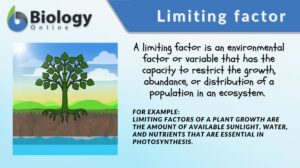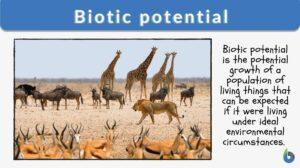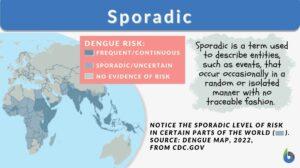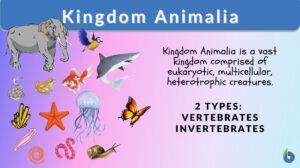Search Results for: minimum
Law of the minimum
Law of the minimum growth and development of plants and animals are determined by the availability of that essential... Read More
Minimum temperature
minimum temperature In bacteriology, denoting a temperature below which growth will not take... Read More
Limiting factor
Limiting Factor Definition A limiting factor refers to any of the factors (variables) in an environment capable of limiting... Read More
Residual volume
Residual volume is a term that is most often seen in lung physiology where it is defined as the amount of air remaining in... Read More
Biotic potential
When we look at the different forms of life, we often wonder how they have continued to exist one generation after another.... Read More
Shelfords Law of Tolerance
Definition noun It is a law stating that a certain organism’s survival and existence depend upon the multifaceted set of... Read More
Thermometer
thermometer (Science: physics) An instrument for measuring temperature, founded on the principle that changes of temperature... Read More
Critical concentration
Critical concentration (Science: chemistry) The minimum concentration of units needed before a biological polymer will... Read More
Glycogenesis
Definition noun The metabolic process of producing glycogen from glucose for storage mainly in liver and muscle cells in... Read More
Castor oil enema
An injection of castor oil, or a solution containing castor oil, into the rectum as a laxative. Not in common usage today,... Read More
Aerotolerant
Aerotolerant Definition The term "aerotolerant" pertains to an organism that does not require oxygen for growth but can... Read More
Polygenic inheritance
Polygenic inheritance refers to the kind of inheritance in which the trait is produced from the cumulative effects of many... Read More
Animal Water Regulation
Homeostatic control, a set environment, and how evolution and natural selection drives a species to adapt to its environment... Read More
Water in Plants
The movement of molecules, specifically water and any solutes, is vital to understand in light of plant processes. This will... Read More
Circulation
Blood Blood is composed of a liquid, plasma, and blood cells such as erythrocytes (red blood cells,) leukocytes (white... Read More
Sleep and Dreams – Neurology
The Falling Asleep Process During the day when we are awake, our body and brain are working tirelessly to operate our body,... Read More
Still Freshwater & Plants
Plants in the freshwater community provide a means of food for herbivores and harness new energy into the community as a... Read More
Population Regulation in an Ecosystem
Darwin focused some of this work in regards to the population size of a species, and what factors may affect them. He... Read More
Fundamentals of Space Biology: Research on Cells, Animals, and Plants in Space (Space Technology Library)
Fundamentals of Space Biology: Research on Cells, Animals, and Plants in Space ... Read More
Osmotic pressure
Osmotic Pressure Definition Osmotic pressure is the pressure caused by a difference in the amounts of solutes (or... Read More
Utilization time
utilization time The minimum duration of a stimulus of rheobasic strength that is just sufficient to produce... Read More
Rayleigh criterion
Rayleigh criterion (Science: microscopy) A criterion chosen by lord Rayleigh to define the limit of resolution of a... Read More
Follicle-stimulating hormone
Follicle Stimulating Hormone Definition In the pituitary gland of the brain, gonadotropic hormones are released.... Read More
Kingdom Animalia
Kingdom Animalia Definition Each person can say that they know of or can name at least one animal. However, do people know... Read More
Erythrocythemia
Definition noun (1) An increase in the number of circulating erythrocytes in the blood above the minimum normal level. (2)... Read More
Polycythemia
Definition noun An increase in the number of circulating erythrocytes in the blood above the minimum normal... Read More
Fahraeus-lindqvist effect
Fahraeus-lindqvist effect The decrease in apparent viscosity that occurs when a suspension, such as blood, is made to flow... Read More
Dynamic range
Dynamic range (Science: microscopy) in video and other electronic equipment and in photographic emulsions, the ratio of the... Read More
Origins of Life : On Earth and in the Cosmos (2nd Ed)
Origins of Life : On Earth and in the Cosmos ... Read More
Motor point
Definition noun, plural: motor points The most electrically excitable area of the muscle wherein a minimum amount of... Read More














![Osmotic pressure n., plural: osmotic pressures [ɑsˈmɑtɪk ˈpɹɛʃ.ɚ] osmotic pressure definition and example](https://www.biologyonline.com/wp-content/uploads/2020/11/osmotic-pressure-definition-and-example-300x168.jpg)





